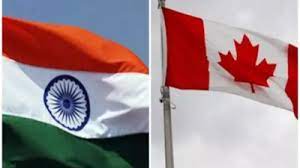WASHINGTON: Ottawa stands to lose from its spat with New Delhi over the killing of a Sikh separatist in terms of trade and its ability to be part of the network of Indo-Pacific institutions while India’s image as a democratic country committed to rules-based order could take a hit, according to an expert.
A diplomatic row erupted between India and Canada earlier this week following Canadian Prime Minister Justin Trudeau’s allegations of “potential” involvement of Indian agents in the killing of Khalistani extremist Hardeep Singh Nijjar, a Canadian citizen, in British Columbia on June 18.
India has rejected the allegations as “absurd” and “motivated” and expelled a senior Canadian diplomat in a tit-for-tat move to Ottawa’s expulsion of an Indian official over the case.
In a blog posted by the Wilson Institute on Friday, Canada Institute Associate Xavier Delgado said, “Trade will likely be the first major casualty of the fallout, with negotiations for the EPTA (Early Progress Trade Agreement) being put on hold. Both countries declared that they would pause trade talks with each other earlier this month and Canadian Trade Minister Mary Ng has indefinitely postponed a trade mission to New Delhi that had been planned for October,” he wrote.
The negotiations were a notable part of Canada’s Indo-Pacific Strategy, which listed the EPTA as a critical step towards a larger comprehensive economic partnership agreement (CEPA) that would bolster trade ties between the two countries, he said.
“A chilling of relations with India could hinder Canada’s ability to join the network of Indo-Pacific institutions, both because regional allies will be wary of angering the Modi government and because India itself could block Canadian membership in certain groups. Ottawa is clearly aware of India’s influence and power in the region,” Delgado said.
However, Canada is not the only party that stands to lose from this dispute, he said.
“The allegations can damage India’s public image as a democratic nation committed to a rules-based order or, more critically, its perception as a trustworthy ally in the competition against China.”


